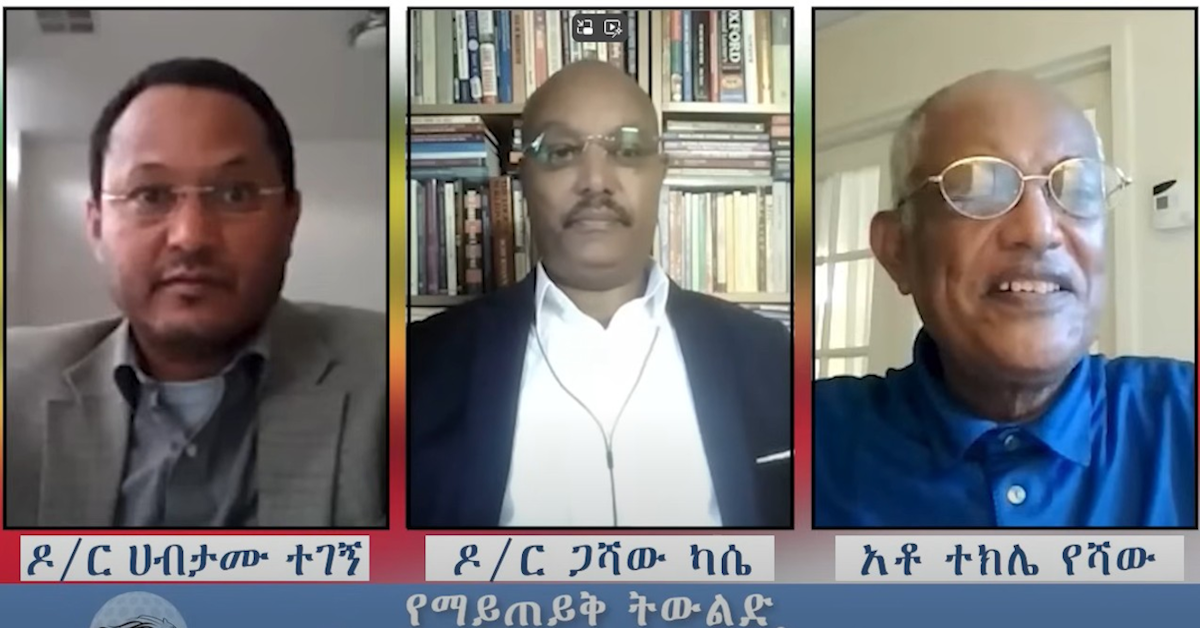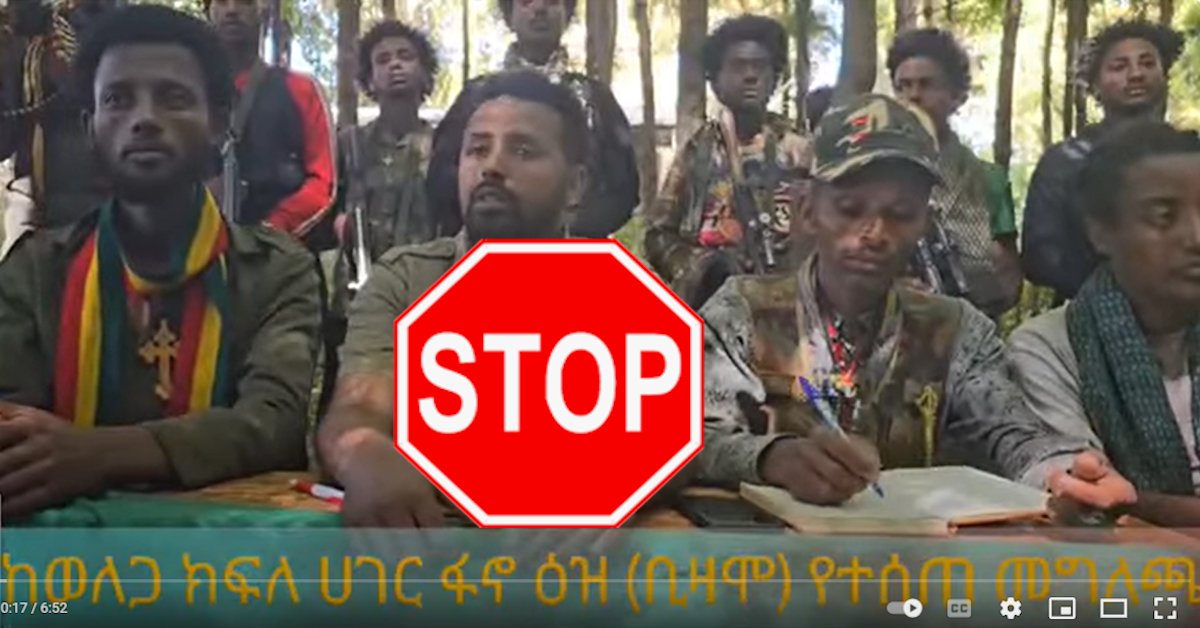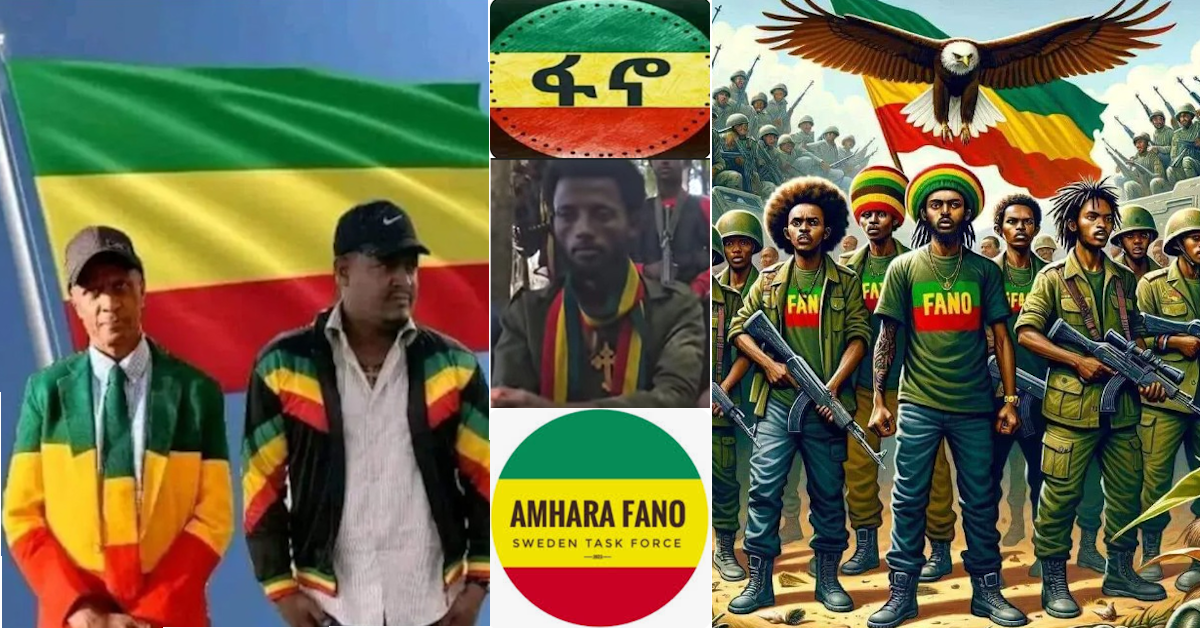by Elemoo Qilxuu
When I saw these three people, the screen characters from The Three Stooges came to mind, albeit in a darker way. The Three Stooges evoke a mix of slapstick chaos, quick wit, and timeless, absurd humor that holds a special place in comedy history. But for these three Amhara elites, what replaces comedy is the politics of envy, wielded through the tools of their education—not to enlighten, but to promote misinformation, disinformation, divisiveness, and revisionism to fit their narrative.
It’s a tragic irony: those who hold advanced degrees and carry titles associated with wisdom and insight are often the same people undermining progress by clinging to an unjust past. As the tide shifts in favor of historical justice, a certain faction among the educated elite digs in, not to bridge divides or acknowledge past wrongs, but to reassert the same privileges that for centuries have sustained inequities. Rather than acting as voices of enlightenment, they increasingly become architects of revisionist narratives that inflame old wounds rather than heal them.
For the YouTube video related to this article, please find the link here.
What drives these individuals, these professors, academics, and intellectuals, to engage in such behaviors? For some, the loss of inherited power—often unquestioned and unearned—is unsettling. The prospect of leveling the field disrupts their sense of security, one that was historically built on the exclusion and suffering of others. The privileged past is not something they view with remorse; rather, they defend it, sometimes subtly and other times brazenly, as if injustice never happened. This group, so schooled in the art of reason and rhetoric, increasingly bends truth into a self-serving narrative, insisting that the victims of past oppression are somehow at fault, painting themselves as the true sufferers of societal shifts.
One might expect that education, which ideally sharpens minds and broadens empathy, would make these elites voices of positive change. But for some, it has had the opposite effect, providing tools of argumentation and analysis they use not to illuminate but to obscure. They risk their professional credibility by peddling misinformation and disinformation, because to them, their intellectual standing is a means of safeguarding their influence, not a platform for truth or fairness.
The tragedy is that education has equipped these individuals with both the knowledge of history and the ability to interpret its impacts, yet they choose a selective, distorted approach. By reimagining history to fit their narrative, they absolve themselves of responsibility for the injustices of the past, simultaneously denying recognition or restitution to those who suffered under it. This selective blindness becomes a weapon that not only discredits their scholarship but degrades the fundamental purpose of education itself.
Thus, as the tide turns and societies strive toward fairness and inclusivity, the educated elites among us risk becoming symbols of the very divisiveness they should seek to dissolve. In place of curiosity and empathy, we see resentment; in place of reconciliation, a bitter defense of status. It’s a misapplication of intellect that history will likely view as a failure of character, a moment when, instead of evolving, these so-called educated minds chose to inflame rather than heal.
For History’s Sake:
- The Oromo people have known no other name for themselves than “Oromo” for time immemorial. No Oromo community, nor any individual Oromo, has ever willingly identified with the derogatory label imposed on them. In fact, many Oromos lived completely unaware of this insulting term, and those who encountered it for the first time only a few decades ago were met with shock and dismay—I am a witness to this. As for the OLF, the claim that it once bore this derogatory name, as Ato Tekle Yeshaw ferrets out of his dishonesty hat, is not only baseless but reveals the pinnacle of dishonesty, a desperate attempt to rewrite history with outright fabrications. Those spreading these lies insult the dignity and resilience of an entire people by denying them their own name and identity.
- There is no country or ethnic group historically known as “Amhara.” Don’t just take my word for it—consult “the well-known Amhara elites” and their own intellectual analyses. Broadly speaking, “Amhara” has traditionally meant “Christian,” a definition echoed by contemporary politicians and activists. That said, there is a country called Abyssinia, which accurately describes the northern region and served as Ethiopia’s name until it was changed by imperial constitution in 1931 only to be recognized internationally after WW2 in 1948. For a more detailed exploration, read my article, Ethiopia’s Big Lies Fueling Its Impending Collapse. It was the EPRDF government that created the Amhara regional state, inadvertently giving rise to a new “Amhara nationalism” when the notion of Ethiopian nationalism was no more tenable and began to falter. It’s important to note that this newly formed Amhara region is home to other ethnic groups, many of whom do not identify with this new Amhara nationalism. One might argue, then, that Oromia was similarly created by the EPRDF—but not so. Read on…
- To my knowledge, the name “Oromia” as an aspirational term existed as early as the early 1970s, perhaps even earlier during the MTA movement. Were you aware of a political pamphlet titled “Oromia” that was circulated in secret alongside the Bakkalcha pamphlet? This fact alone proves that the name “Oromia” held significance several years before the EPRDF era. Prior to the official adoption of “Oromia” under the EPRDF regime, the Oromo people often referred to their land as “Biyya Oromoo,” meaning “Oromo’s Country.” This name might well have been used officially had the more fitting name, Oromia, not emerged.


